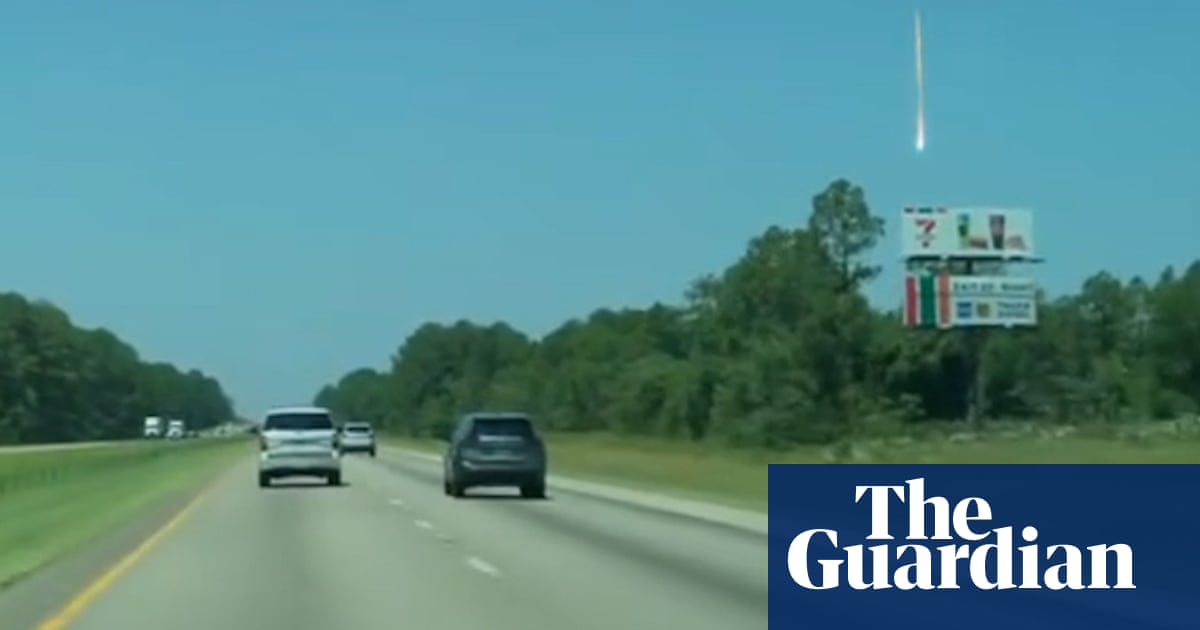A “fireball” that may have been ameteorburned through the sky on Tuesday just after noon in northGeorgia, with a meteorite fragment crashing through the roof of a house in metroAtlanta.
“It pierced through the roof all the way through and cracked through the laminate flooring to the concrete,” said Ryan Morrison, director of emergency management for Henry county, a suburban area south-east ofAtlanta. “That’s why we think it’s part of this meteor storm.” The homeowner requested the homeland security office refrain from identifying them, because they have a small child, Morrison said.
People across north Georgia and parts of North Carolina and South Carolina reported seeing the meteor, smoke trailing its descent. A boom around 12.30pm rattled houses across metro Atlanta.Imagesandvideohave begun to emerge of the fireball.
The National Weather Service didn’t initially recognize what it saw on its radar, said Dylan Lusk, a senior meteorologist at the service’s Peachtree City station.
“We did not catch it on radar, and that is mostly because it looks like the fireball that occurred was a little bit too high up,” Lusk said. “I was looking at some of our satellite stuff; we were able to catch a smoke trail.”
The fireball resembled a lightning strike on the service’s global lightning mapper, he said. The Atlanta area has had a spate of strong lightning storms over the last day, which led many to dismiss the boom as more lightning.
A meteor strike is uncharted territory, Lusk said. “We’re not experts on this stuff,” he said. Space debris or asteroids are the purview of Nasa, he added.
